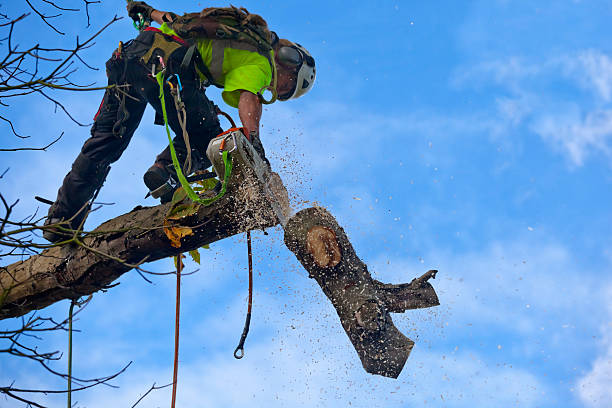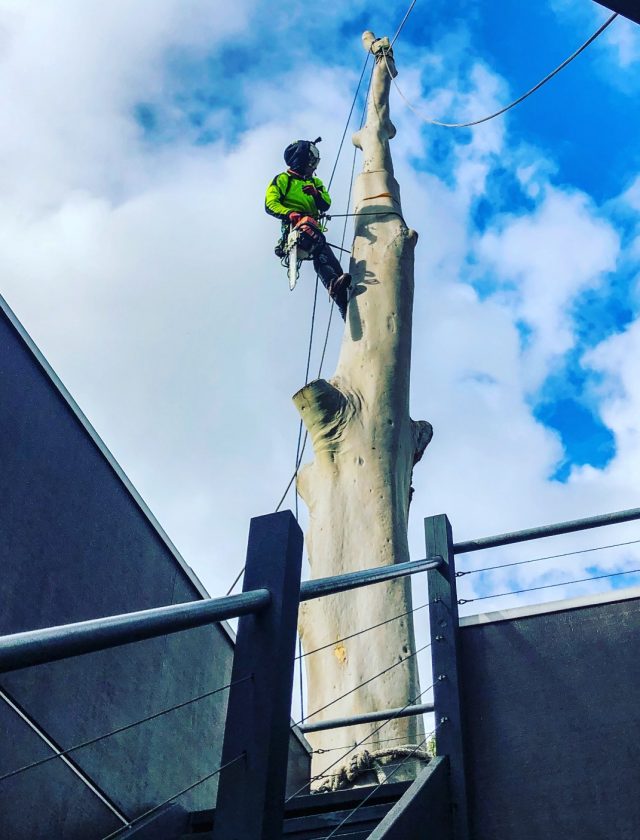Introduction
What is Arborist? A specialist in the care and maintenance of trees often called tree surgeons, plays a vital role in preserving and maintaining our urban green spaces. As cities expand and greenery becomes increasingly valued, the demand for skilled arborists is on the rise. In this article, we delve into the qualifications essential for individuals aspiring to embark on a career in arboriculture.
Educational Qualifications to be an Arborist
Accredited programs and degrees in arboriculture provide a structured learning path, covering a comprehensive curriculum that encompasses tree biology, soil science, and arboricultural practices. Formal education serves as the cornerstone for aspiring arborists, and prospective arborists should seek programs recognized by industry standards, ensuring a solid foundation for their future endeavors. Additionally, obtaining specialized certifications, such as the International Society of Arboriculture (ISA) certification or Utility Arborist certification, further enhances one’s credibility in the field.
Practical Experience
Beyond the classroom, practical experience is paramount. Apprenticeships and internships offer aspiring arborists hands-on training, exposing them to real-world scenarios and challenges. Working alongside seasoned professionals provides valuable mentorship opportunities, allowing individuals to refine their skills and gain insights into the nuances of arboriculture. Proficiency in fieldwork and climbing skills is crucial, requiring mastery of arboricultural techniques and a keen understanding of safety protocols and equipment.
Knowledge Base
Arborists must possess a robust knowledge base, extending beyond the ability to wield a chainsaw. A deep understanding of tree biology, physiology, and the identification of diseases and pests is imperative. Furthermore, environmental awareness is key, with arborists expected to comprehend the intricacies of ecosystems and implement sustainable arboricultural practices to promote the health and longevity of trees.
Soft Skills arborist
Effective communication and customer service skills are indispensable in the world of arboriculture. Arborists frequently interact with clients, explaining the intricacies of tree care and addressing concerns. Beyond technical expertise, possessing strong problem-solving and decision-making skills is essential. Arborists often encounter unexpected challenges in the field, requiring critical thinking to ensure the optimal management of trees under their care.
Legal and Safety Requirements
. A thorough understanding of local tree preservation laws is crucial to avoid legal complications. Simultaneously, adherence to occupational safety standards is non-negotiable. Arborists must prioritize safety protocols to protect themselves, their team, and the environment.
Ongoing Professional Development of Arborist
The field of arboriculture is dynamic, with new techniques and technologies continually emerging. Arborists committed to excellence prioritize ongoing professional development. This involves staying updated on industry trends, attending workshops, and participating in conferences. By embracing a culture of continuous learning, arborists ensure their practices align with the latest advancements in the field.
In conclusion, becoming an arborist requires a multifaceted approach. From formal education to practical experience, a blend of technical expertise, soft skills, and adherence to legal and safety standards defines a successful arborist. As urban spaces continue to rely on the expertise of these tree caretakers, the qualifications outlined here serve as a roadmap for those seeking a fulfilling career in arboriculture.
FAQ’s
What educational background is suitable for becoming an arborist?
To become an arborist, a strong educational foundation in forestry, horticulture, or arboriculture is beneficial. Practical experience is equally crucial for a well-rounded skill set.
Are there specific certifications for arborists?
Yes, pursuing certifications from recognized arborist associations validates your expertise and enhances your professional credibility.
How important is physical fitness for arborists?
Physical fitness is paramount for arborists, as the job involves climbing, pruning, and carrying equipment. Regular exercise ensures you can meet the physical demands of the profession.
What specializations are available in arboriculture?
Arboriculture offers diverse specializations such as urban forestry, tree preservation, and consulting. Explore these branches to find your niche in the arborist canopy.
What is the environmental impact of arboriculture?
Arborists play a crucial role as stewards of the environment. Understanding and implementing sustainable tree care practices minimize the environmental impact of arboriculture.
Embark on your arborist journey with these insights, and soon you’ll find yourself among the branches, making a difference in the world of trees.
About the Author:
Mike Veail is a recognized digital marketing expert with over 6 years of experience in helping tradespeople and small businesses thrive online. A former quantity surveyor, Mike combines deep industry knowledge with hands-on expertise in SEO and Google Ads. His marketing strategies are tailored to the specific needs of the trades sector, helping businesses increase visibility and generate more leads through proven, ethical methods.
Mike has successfully partnered with numerous companies, establishing a track record of delivering measurable results. His work has been featured across various platforms that showcase his expertise in lead generation and online marketing for the trades sector.
Learn more about Mike's experience and services at https://theleadguy.online or follow him on social media:


